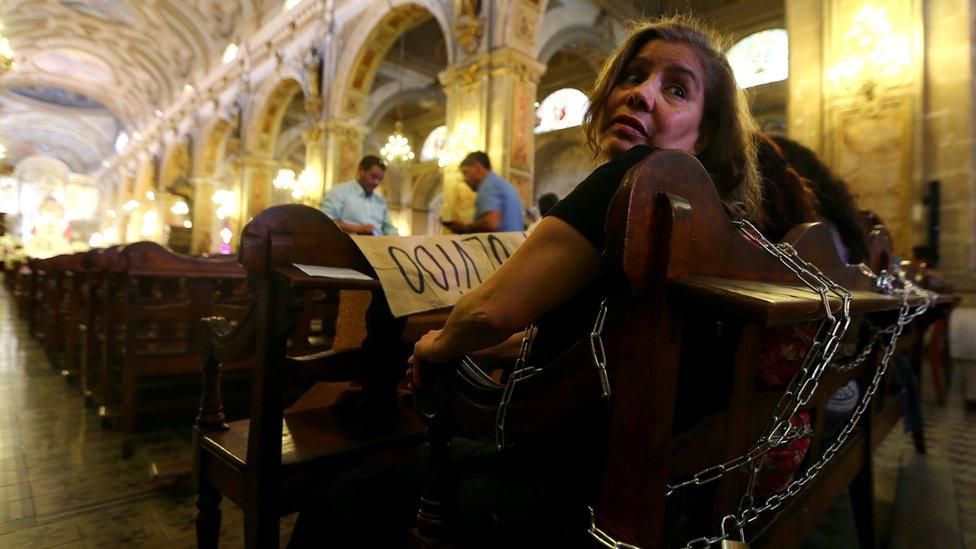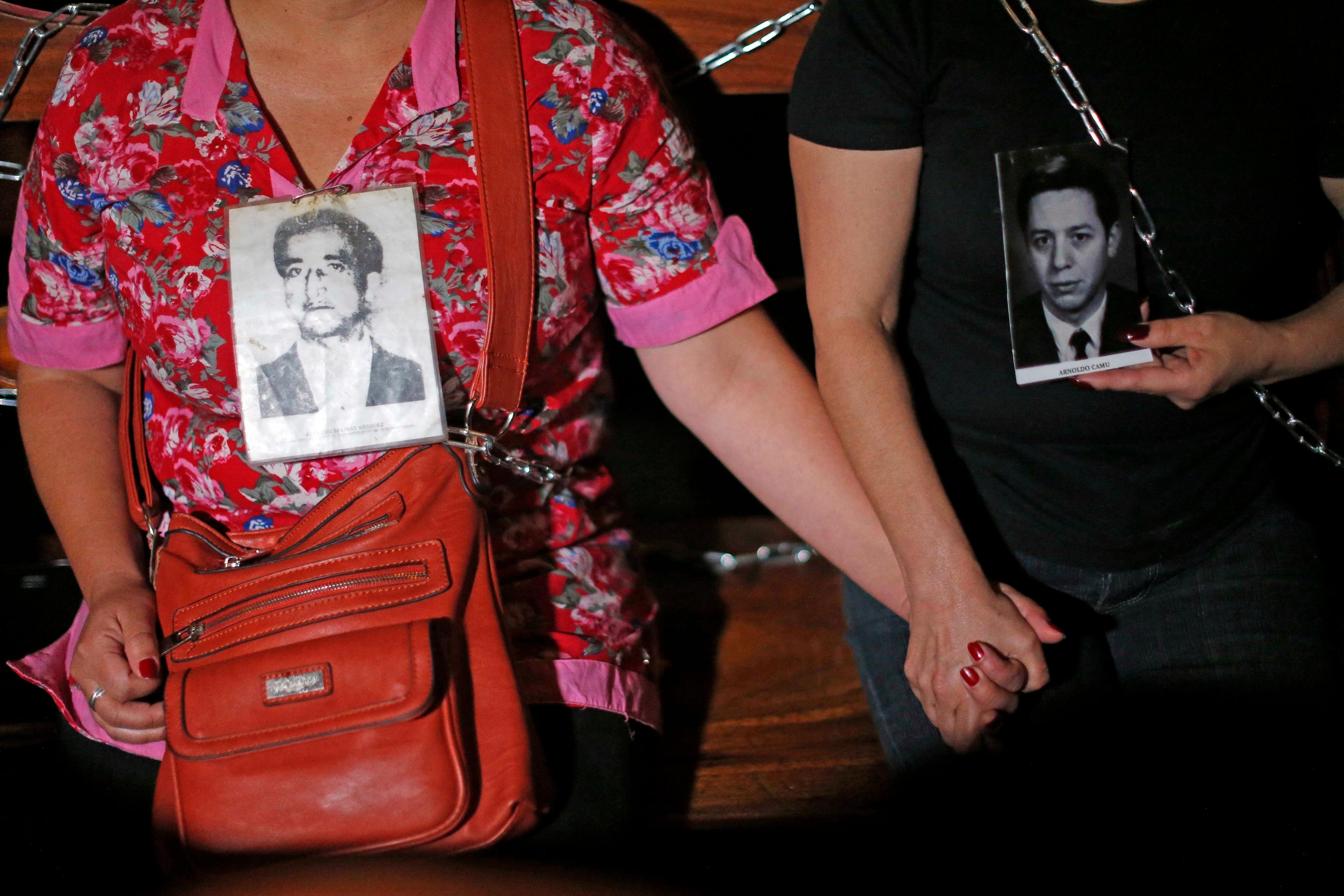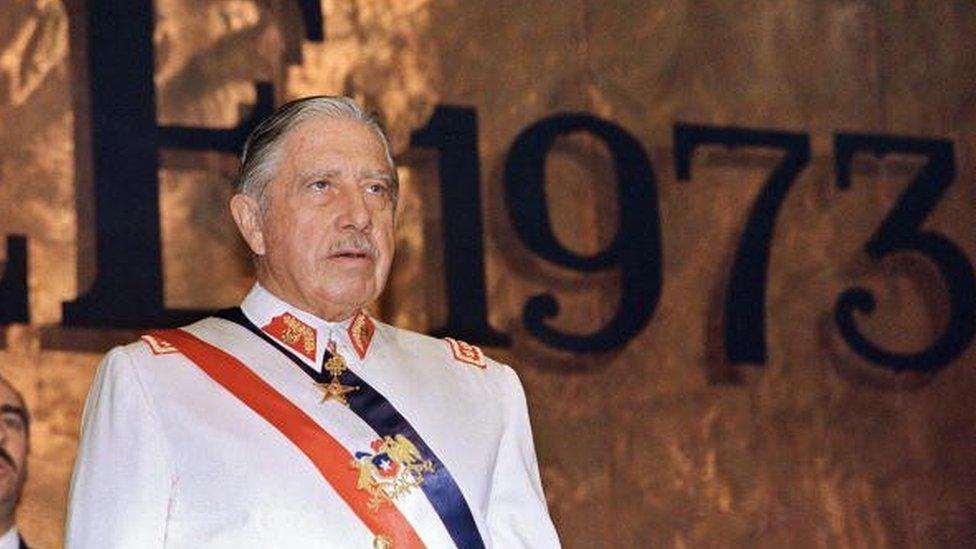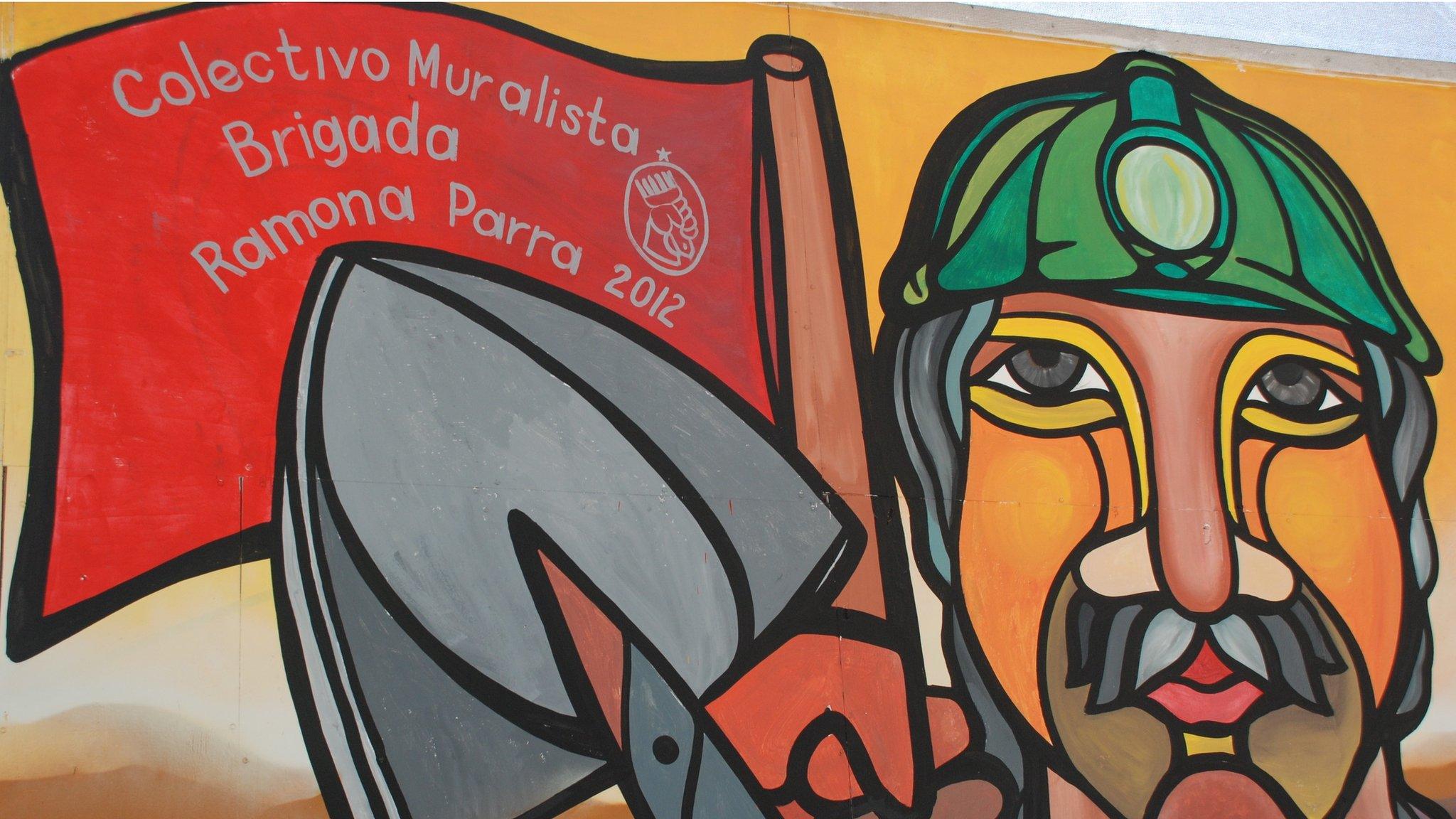Chile anger as jailed Pinochet reign abusers ask forgiveness
- Published

Relatives of people killed and tortured during Augusto Pinochet's regime protest in Santiago
Requests for forgiveness have sparked anger in Chile among relatives of people tortured and killed during Augusto Pinochet's 17-year rule.
Ten men, who are all serving long sentences for human rights abuses, asked for forgiveness during a special Christmas Mass held inside their jail.
But campaigners said if they were truly repentant, they would reveal where some of their victims were buried.
Some 3,000 Pinochet opponents were killed during the 1970s and 1980s.
The human rights campaigners said the event was a cynical, empty gesture, designed solely so the prisoners - among them a leading member of the DINA, the general's feared secret police - secure an early release from jail.
Some relatives chained themselves to pews at the Cathedral of Santiago to protest against the mass.
Protester Luis Andrade told the BBC: "They've committed crimes for which in other countries they would have given them the lethal injection or the electric chair. They murdered people.
"They shot them, they raped them, they tortured them. My aunt herself was tortured while she was pregnant. So what do they care about us? Did they care about us when they were torturing us?"

Protesters say the event was a cynical, empty gesture, designed so the prisoners could secure early release
But Catholic priest Fernando Montes, who led the service at the top-security Punta Peuco prison on the outskirts of Santiago, said none of the men had asked to be released or to have their sentences reduced - they had simply asked for forgiveness.
He added: "Perhaps, from today, those people who have information about what happened can come forward with it, and in that way help bring about justice?"
Pinochet took control of Chile in a military coup in 1973, declaring himself president the next year.
He ordered many of the purges which saw thousands killed, and many more thousands tortured and driven into exile.
Pinochet stepped down as president in 1990, as commander-in-chief of the army in 1998 and died in 2006.
But the scars of his rule still remain and, four decades on, the bodies of some of the victims have still never been found, Gideon Long reports for BBC News.
- Published10 December 2015

- Published6 September 2013
